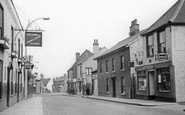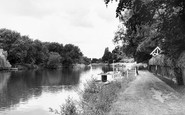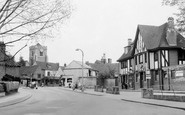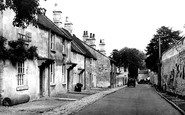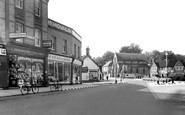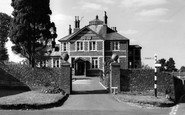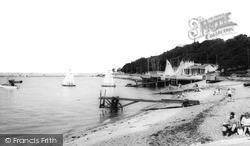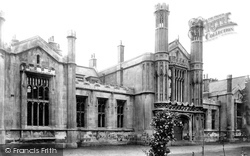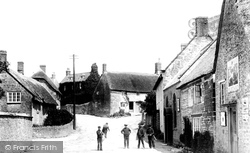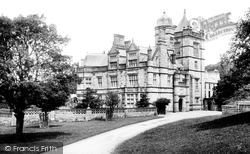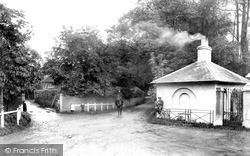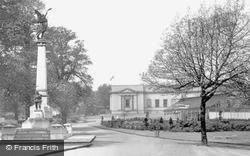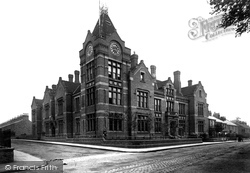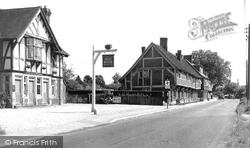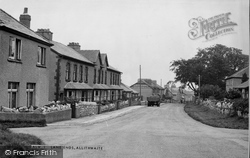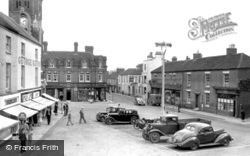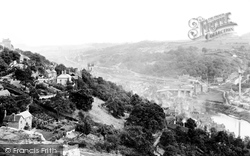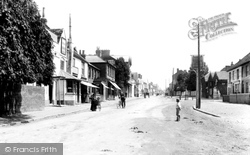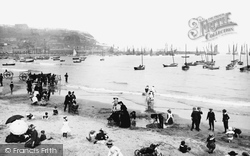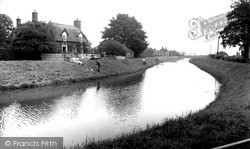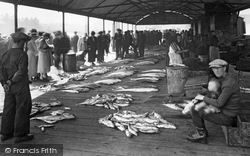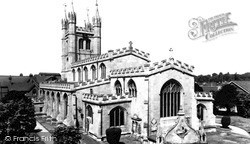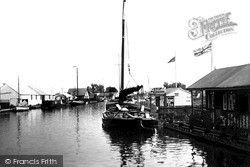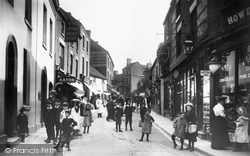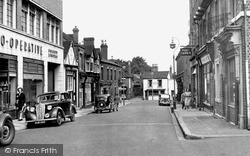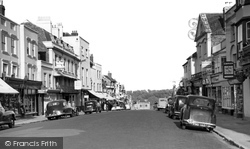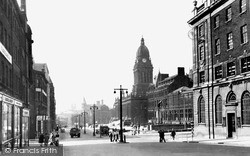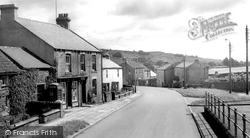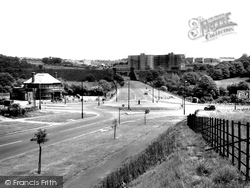Places
18 places found.
Those places high-lighted have photos. All locations may have maps, books and memories.
- Hythe, Kent
- Hythe, Hampshire
- Small Hythe, Kent
- Bablock Hythe, Oxfordshire
- Methwold Hythe, Norfolk
- Hythe, Somerset
- Hythe, Surrey
- Hythe End, Berkshire
- The Hythe, Essex
- Egham Hythe, Surrey
- West Hythe, Kent
- New Hythe, Kent
- Broad Street, Kent (near Hythe)
- Horn Street, Kent (near Hythe)
- Newbarn, Kent (near Hythe)
- Newington, Kent (near Hythe)
- Broad Street, Kent (near Hythe)
- Stone Hill, Kent (near Hythe)
Photos
360 photos found. Showing results 1,241 to 360.
Maps
101 maps found.
Books
10 books found. Showing results 1,489 to 10.
Memories
4,406 memories found. Showing results 621 to 630.
Mixed Feelings
I first arrived in Llanegryn at the latter end of 1939 along with my younger sister and a lot of other kids from my school (St Johns)in Birkenhead. I was eight years old at the time and my sister was six. We were all put into the ...Read more
A memory of Llanegryn in 1930 by
Aveley An Age Away.
I lived in Aveley Villiage from when I was born in 1957 until we moved to the Kennington Estate about 1971. We had a funny house in Church View which seemed to be back to front compared to some of my friends houses. Our end of ...Read more
A memory of Aveley by
My Schooldays 1952 54 Near Skipton
My Grandparents lived at 26 Otley Street in Skipton from the 1940 ( or earlier ) and I had first visited them in 1945 after VE day, They were Thomas Henry Jackson, my Grandmother Charlotte Jackson and their ...Read more
A memory of Skipton in 1952 by
Picking Wild Violets
My friend Jean and I used to pick wild violets in the wood just along the towpath on the right hand side of this picture. The wood was a carpet of yellow celandines in Spring and the scent from the wild violets was reward in ...Read more
A memory of Dorney in 1958 by
Growing Up In Abridge Roger Walker
We moved to Abridge in 1948, I was 8 years old, with mum and dad Pat and Stan Walker. We lived at no 41 Pancroft Estate later re numbered 45. My early memories of the little villiage was of Brighty's shop and ...Read more
A memory of Abridge in 1948 by
Pub Sign At The George
The George Hotel was newly decorated and it re-opened with a special day around 1985. The horse drawn Whitbread Brewery dray arrived and the newly painted pub sign was unveiled by the mayor. Everything looked great and a ...Read more
A memory of Ruislip in 1985 by
Not Quite The Same
On the left of this picture are three doorways marked by stone porches. I live in the third of the three away from the camera. The second remains as it is shown but the first doorway has now been blocked up. The house has been ...Read more
A memory of Bathford by
The Old Cinema
We moved to Egham in about 1955. My father had been born in Medlake Road in 1920. We lived in Oak Avenue, Egham Hythe in a house built in the 1930s. I attended Egham Hythe Infants and Primary and later Magna Carta (on both its sites ...Read more
A memory of Egham in 1960 by
Wartime Evacuee
I was evacuated from Dagenham during the war with my sisters Joyce and Pat. They lived with the schoolmaster Mr Pearce, whilst I lived with Mr & Mrs Norris Tinylogs, Lily Lane. I remember working with Mr Frank Hazzard during ...Read more
A memory of Templecombe in 1940 by
Saturday Morning Pictures Etc
I lived on the border of Belvedere and Erith, just off Parsonage Manor Way and used to travel to Erith by bus. I remember as a child of about 8-10 taking the 122a into Erith to go to the Odeon, Saturday Morning ...Read more
A memory of Erith by
Captions
4,899 captions found. Showing results 1,489 to 1,512.
The couple in the deckchairs sit just above the high tide mark, shown by the line of
In 1844 it was acquired by the Dean and Chapter to use for St Peter's School, which had outgrown its former site. It is now the oldest public school in England.
Henry I gave the village and living of Burton Bradstock to the great Normandy abbey at Caen in exchange for the royal regalia of William the Conqueror, which the monks claimed had been gifted to them by the
This sumptuous rebuilding, supervised by the seventh Duke of Devonshire, was designed by Paley and Austin of Lancaster, and has been described as their most outstanding domestic work.
This fascinating photograph shows an assortment of individuals all of whom appear to be mesmerised by the camera.
Weston House and its grounds were sold by the Harrison family to the Corporation in 1873, the house itself being converted into a museum; the Mappin Art Gallery was added in 1887.The war memorial
It is still used for offices, but no longer by the War Department. A horse must have recently passed by, as it has left a deposit on the side of the road.
It was rebuilt in 1908 to plans by the architect Arthur J Stedman of Farnham in the mock-Tudor style prevalent at that time.
The view was taken looking down Church Road from Cartmel Road by the crossroads, and is still much the same in appearance.
Today the size of this pub (built in 1938) reminds us that by the 20th century Hoylake had become a holiday resort.
There was a forge in the area by 1273, and glassmaking was well established by the early 14th century. John Glasman supplied stained glass for the East Window of York Minster.
By the time this photograph was taken Ironbridge was no longer the industrial heartland it had once been.
Judging by the quantity of lines carried on the telegraph poles, it would appear that a number of telephones had been installed in the area.
Most of them appear to be cobles, a traditional Yorkshire open boat easily identified by the square transom which has a reverse slope.
There is no change in this beautiful and tranquil scene as the river gently flows by the lovely thatched house onwards to Gibraltar Point.
By the mid 18th century, Whitby was involved in whaling; blubber warehouses were erected along the inner harbour.
During the Civil War, the parish church of St Nicolas was occupied by the Parliamentary troops and used as a prison, a hospital, and a guard room.
Another is berthed on the opposite bank, identifiable by the wide, shallow hull and very high pennanted mast.
One gets the distinct impression that all the children here have been carefully posed by the photographer.
We forget what a recent introduction this is; a comparison of this photograph with the next one (of the same street but from the other direction) shows that by the early 1960s the 'Keep Clear' signs had
The old hillfort of Buckland Rings was certainly occupied by the Romans - nearly 2 hundredweight of Roman coins were found there in the 18th century.
Leeds Town Hall, designed by the Hull architect Cuthbert Broderick, has been described as one of the best examples of the Classical revival style in England.
When lead was discovered in Weardale, the mining rights were granted to the bishops of Durham; by the 13th century, mining, smelting and charcoal burning and so on were on a large scale for the period.
Delayed by the outbreak of the Second World War, the programme continued in the 1940s and included plans to build 53,000 new homes. However, building always lagged behind demand.
Places (18)
Photos (360)
Memories (4406)
Books (10)
Maps (101)

